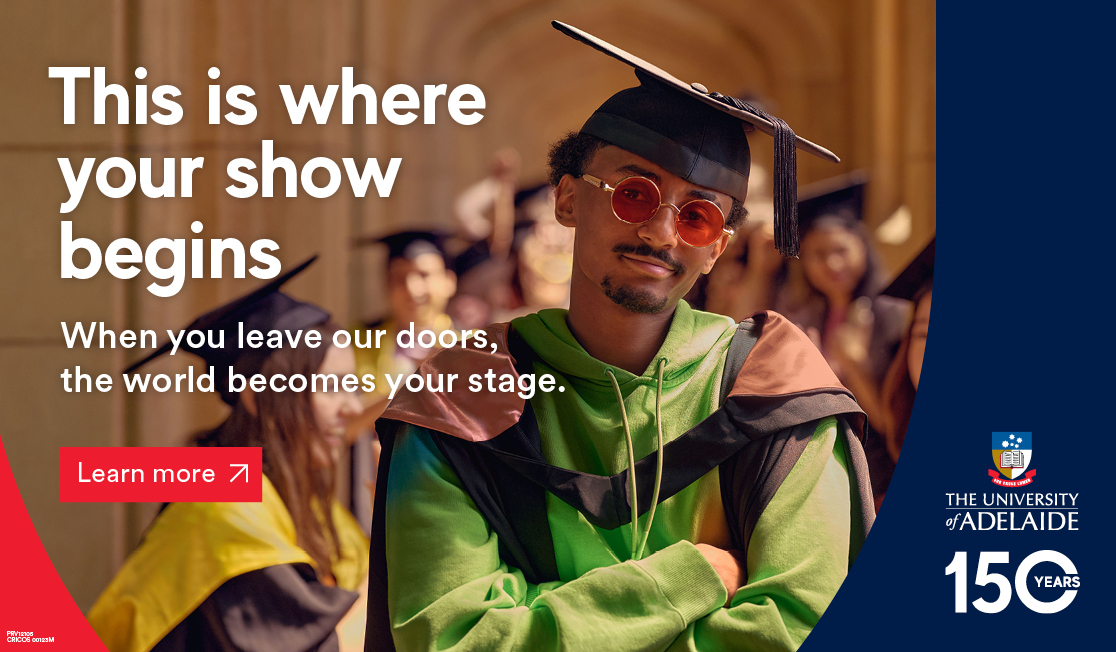Compassion and Ngapa William Cooper Program
Compassion and Ngapa William Cooper Program content
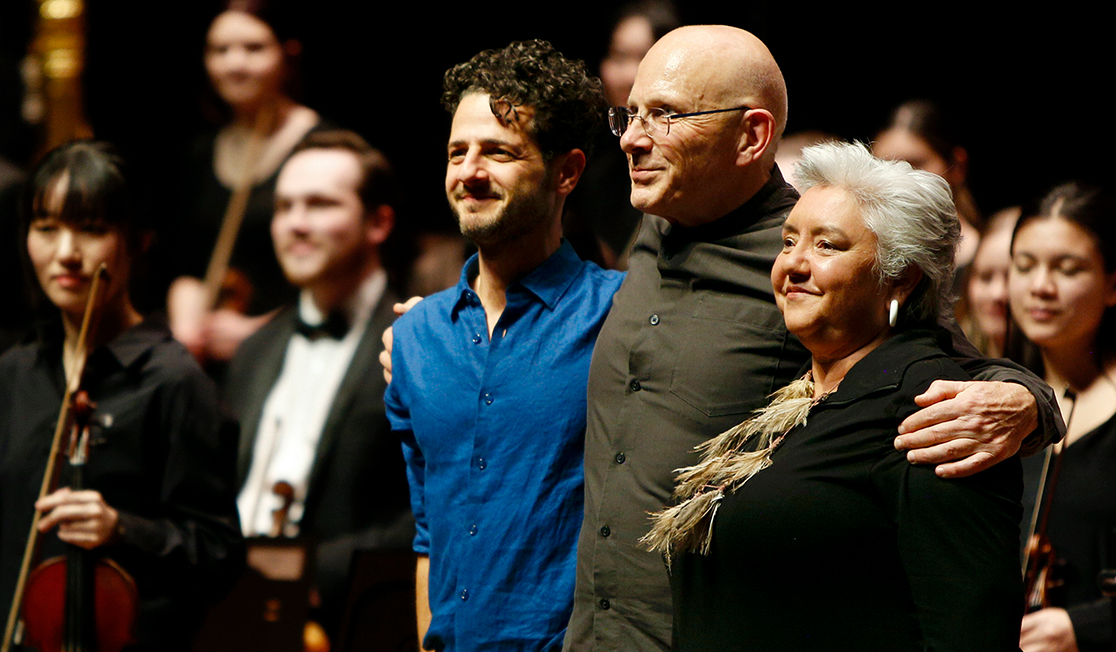
Music
Compassion and Ngapa William Cooper
Conducted by Nigel Westlake
Performed by Lior, Dr Lou Bennett AM and Adelaide Symphony Orchestra
Dates: 9 Mar 2024
Venue: Festival Theatre
Updated duration: 2hrs, incl. interval
Ngapa William Cooper was commissioned by UKARIA with support from Ulrike Klein AO and the Adelaide Festival as part of Finding Our Voice, which was supported by Restart Investment to Sustain and Expand (RISE) Fund, an Australian Government initiative. Symphonic realisation commissioned by the Australian Youth Orchestra.




Contents
Compassion
Program & Introduction
The Genesis of Compassion
Two Worlds in Common
Compassion Texts
Ngapa William Cooper
Program
About Ngapa William Cooper
Ngapa William Cooper Texts
Program Note: Ngapa William Cooper
Adelaide Festival is committed to sustainability and does not offer printed programs for most works. Our digital show programs have a contents section for easy navigation. If you would prefer a pdf that you can download or print at home, please use the button below.
Credits
Conducted by
Nigel Westlake
Performed by
Lior
Dr Lou Bennett AM
Adelaide Symphony Orchestra
Violins
Cameron Hill** (Acting Concertmaster)
Holly Piccoli* (Acting Associate Concertmaster)
Gillian Braithwaite* (Acting Principal 1st Violin)
Alison Heike** (Principal 2nd Violin)
Lachlan Bramble ~ (Associate Principal 2nd Violin)
Janet Anderson
Ann Axelby
Erna Berberyan
Minas Berberyan
Gillian Braithwaite
Julia Brittain
Hilary Bruer
Elizabeth Collins
Jane Collins
Danielle Jaquillard
Zsuzsa Leon
Alexis Milton
Michael Milton
Ambra Nesa
Julie Newman
Liam Oborne
Emma Perkins
Alexander Permezel
Alison Rayner
Niki Vasilakis
Violas
Justin Julian**
David Wicks~ (Guest Associate)
Martin Alexander
Lesley Cockram
Linda Garrett
Anna Hansen
Natalie Maegraith
Rosi McGowran
Michael Robertson
Cellos
Rachel Johnston** (Guest Principal)
Gemma Phillips~ (Acting Associate)
Joseph Freer
Sherrilyn Handley
Hamish Jamieson
Shuhei Lawson
David Sharp
Cameron Waters
Double Basses
David Schilling**
Belinda Kendall-Smith~ (Acting Associate)
Jacky Chang
Harley Gray
Aurora Henrich
Gustavo Quintino
Flute + Alto Flute
Kate Proctor**(Guest Principal)
Piccolo + Alto Flute
Julia Grenfell*
Oboe
Joshua Oates**
Cor Anglais
Peter Duggan*
Clarinet + E Flat Clarinet
Darren Skelton** (Acting Principal)
Bass Clarinet + Contra Bass Clarinet
Mitchell Berick*
Bassoons
Mark Gaydon**
Leah Stephenson
Contra Bassoon
Leah Stephenson*
Horns
Adrian Uren**
Sarah Barrett~
Emma Gregan
Philip Paine*
Timothy Skelly
Trumpets
David Khafagi**
Martin Phillipson~
Gregory Frick
Trombones
Colin Prichard**
Ian Denbigh
Bass Trombone
Amanda Tillett*
Tuba
Stanley McDonald*
Timpani
Andrew Penrose*
Percussion
Steven Peterka**
Sami Butler~
Jamie Adam
Amanda Grigg
Max Ziliotto
Harp
Carolyn Burgess* (Guest Principal)
Piano/Celeste
Katrina Reynolds* (Guest Principal)
** denotes Section Principal
~ denotes Associate Principal
* denotes Principal Player
Compassion
Program & Introduction
Westlake/Lior
Compassion
Sim Shalom – Grant Peace
Eize Hu Chacham? – Who is Wise?
La Yu’minu – Until You Love Your Brother
Inna Rifqa – The Beauty Within
Al Takshu L’vavchem – Don’t Harden Your Hearts
Ma Wadani Ahadun – Until the End of Time
Avinu Malkeinu – Hymn of Compassion
Compassion draws from the rich worlds of Islam and Judaism to present a collection of profound and poetic messages surrounding the idea of compassion between human beings.
The texts are largely a collection of poems, proverbs and songs that give us an insight into such wisdom. Their similarities are immense and their universality is undeniable.
Far from the misguided commentaries that have so often steered humanity away from the true enactment of compassion, these texts affirm that attaining a greater sense of compassion is an ultimate goal, and letting it guide our actions is the ultimate wisdom.
The Genesis of Compassion
By Nigel Westlake
The catalyst for Compassion can be traced to a single watershed moment – the occurrence of my first Lior concert. It was the winter of 2009 in the tiny rural village of St Albans, NSW, the occasion being the inaugural fund raising event for the “Smugglers of Light”, a foundation formed by our family in memory of my son Eli.
At dusk, as the winter mist settled upon the forgotten valley (as it is sometimes known), quietly nestled between the towering ridges of Hawkesbury river sandstone, Lior began to weave his magic upon the crowd, many of whom had travelled long distances to join us for the weekend music festival. It was a poignant occasion that had been planned to coincide with the 12 month anniversary of Eli’s death. The music held a very special meaning for our friends and family, many of whom were still grappling with the tragic loss that had befallen us the previous year.
Lior’s music had been introduced to me several years earlier by my son Joel, and had quickly become absorbed into the family playlist, underscoring many happy times and celebratory moments. As it happened, Autumn Flow, the album that rocketed Lior to prominence in 2005, was among the last music I shared with my son Eli the week before his death, thereby forever imbuing these sweet songs with a very unique and deeply personal significance for me.
A fortuitous family connection with a dear friend had facilitated a personal introduction and Lior had graciously accepted our request to perform for the foundation. It was one of those special nights that people talk about for years afterwards and also featured some wonderful performances from the Grigoryan Brothers and the Goldner String Quartet.
Lior concluded the proceedings with one of his best known songs, “This Old Love”. As he was brought back on stage for the encore, little did I realise that his final offering for the night would hold the germ of an idea that would become the catalyst for a life-changing and enriching journey. Coaxing us gently into another world, as if possessed by unseen forces, and without accompaniment, Lior began to embrace the plaintive and heartfelt strains of the ancient Hebrew hymn of compassion “Avinu Malkeinu”.
In stark contrast to what had preceded, here was another side to Lior’s artistry, his keening and emotionally charged voice allowing us an intimate glimpse into the rich vein of middle eastern heritage that is his birthright. The power and spirituality of the song struck a deep resonance amongst the crowd, all of whom were captivated in spellbound rapture. For my own part, I had just experienced a small taste of a tantalising and exotic soundworld and I was overcome by a strange yearning to be a part of it.
Following the concert, I suggested to Lior that I take a solo vocal recording of his performance and create a symphonic arrangement around it. Neither of us were sure where this might lead, but I had a hunch it was at least worth a shot.
Weaving my orchestration around Lior’s voice was a little like writing a movie score, the vocal part an intractable dramatic narrative, the orchestral accompaniment a fluid underscore replete with abundant possibilities. We could both sense potential in the finished idea and it seemed a natural progression to expand the material into a song cycle for voice and orchestra.
In passing, I casually mentioned our plan to Peter Czornyj (director of artistic planning, Sydney Symphony Orchestra) and he suggested the orchestra would be interested in bringing the idea to fruition through a commission. We set to work.
Just as our first attempt “Avinu Malkeinu” had begun life as a solo vocal, we now followed a similar pattern for the rest of the composition process. Using the concept of compassion as a common theme, Lior proposed the texts be sourced from a combination of Hebrew and Arabic writings. In the context of a troubled and divisive history, the drawing together of these common threads of Judaism and Islam struck me as a bold and courageous strategy, and a perfect fit for Lior’s middle eastern ancestry and family history. Through painstaking research, he managed to unearth a wonderful collection of ancient proverbs, writings and poetry.
For each text, he devised a vocal part which he sent me as a solo recording, sometimes embodying the germ of a melodic fragment and at other times as a complete series of mellifluous phrases. Many of the songs sounded for all the world like ancient chants exhumed from a long lost tomb somewhere on the shores of the Red Sea, yet the melodies were very much alive and fresh, full of richness, vibrancy and spontaneity. It was inspiring to hear Lior working outside his comfort zone, experimenting with new vocal timbres and using his extraordinary three-octave vocal range to great effect.
Every few weeks, we would get together to review progress and examine the overall form of each piece. Given our dissimilar experiences in music, I couldn’t believe how we seemed to be on the same wave length, striving toward a common goal, critical of the same issues and agreeing on the ideas that seemed to work. Some of the songs evolved over a period of months, others over days, but what has emerged is a true collaboration, and music that neither of us could ever have written on our own.
Compassion inhabits a vast array of emotions and colours, at times pulsating and riotous, at others reflective and textural, and draws upon the myriad of influences the two of us have been able to bring to the table from our incredibly diverse backgrounds. With the utmost respect, we have tried to imbue these ancient texts with a contemporary interpretation, adhering to the purity of a single voice and orchestra. Although the songs are all sung in their original language, there are no conscious references to traditional Hebrew or Arabic musical forms, melodies or scales (with the exception for “Avinu Malkeinu”, which is based on a traditional melody).
The support of the Sydney Symphony Orchestra in bringing this project to the stage has been absolutely extraordinary. Lior and I are profoundly grateful to Peter Czornyj and the orchestral management for their enthusiasm and encouragement.
Seeing this piece come together over has been a major highlight in my career. It is my hope that this music might offer its listeners the space and opportunity to reflect upon the qualities of that most noble of human sentiments, the good stuff that enriches our lives with meaning, insight, depth and intrinsic worth: the virtue of compassion.
Two Worlds in Common
By Lior Attar
The research that eventually led me to the texts threaded through Compassion took me far and wide, from conversations with religious leaders and linguists, to regular consultations with my good friend Waleed Aly, who took me through the finer details of Arabic pronunciation and the subtleties of the Arabic texts.
Being a fluent Hebrew speaker, I initially thought that singing some of the texts in Arabic would feel foreign and disingenuous. Yet to my surprise, many of the words I encountered were common to both languages. It became clear in learning these texts that these two languages shared a deep and common source. Just as experience often validates the existence of a well-worn cliché, it is difficult to escape the analogy of two brothers starting from a common source and branching out to gather their own rich experience and identity to become what we now know as modern Hebrew and Arabic.
In time, I would also come to learn not only of the similarities in language, but in the very essence of the messages embodied throughout these proverbs and poems. What began with a feeling of trepidation as to whether Nigel Westlake and I could sincerely encapsulate the artistic concept and vision we shared for this undertaking, has ended with a full embrace and a somewhat unexpected sense of renewed optimism.
It may seem strange in the context of this work, yet neither Nigel nor I consider ourselves religious people. We do, however, share a firm belief that much of the beauty and wisdom found within so many works of art and philosophy attributed to a certain religion need not lie exclusive to those who subscribe to its faith, nor only to those who seek a connection with God through directional prayer. They have so much to offer to those who might accept them without bias or judgement.
Compassion Texts
Ngapa William Cooper
Program
Westlake/Lior/Bennett
Ngapa William Cooper
Exile/Call to Ancestors
The News
The Silence
Yakapna (Family)
The Meeting
The Protest
At the End of My Days
About Ngapa William Cooper
By Sarah Gory
Ngapa William Cooper is the culmination of years of thinking, writing and creating, alone and together. The pandemic and subsequent lockdowns slowed the process of creation, which turned out to be a blessing in disguise. It allowed ideas to percolate slowly and the collaborative elements to come together organically. Lyrically and musically, Ngapa William Cooper is textural and layered — a reflection of the story that it weaves. Thematically, Ngapa William Cooper is a continuation of Lior and Nigel’s acclaimed Compassion collaboration and yet at the same time it stands on its own, greater than the sum of its parts.
Above all, Ngapa William Cooper is a testament to Yorta Yorta activist Uncle William Cooper, and the importance of continuing his legacy of resistance, solidarity and empathy.
While the histories of Indigenous Australians and Jews are divergent and unique, they share common elements. Both peoples have been subject to genocide, displaced from their lands, marginalised and persecuted. Both have also shown great resistance, proudly continuing their culture through stories, learning, song and family, often in the face of great odds. Ngapa William Cooper is a reminder that our voices raised together are powerful instruments, in more ways than one.
Kristallnacht
On the night of 9 November 1938, civilians and Nazi authorities ransacked and destroyed Jewish homes, shops and synagogues across Germany and Austria. This series of coordinated pogroms became known as Kristallnacht - ‘Night of Broken Glass’ — named so for the shattered windows that littered the streets the next morning. Kristallnacht marked the escalation of anti-Jewish violence in Nazi Germany, and the beginning of the end for European Jewry and Yiddishkeit culture as it once was. Almost one hundred Jews were murdered that night, and some thirty thousand Jewish men were rounded up and sent to the now infamous concentration camps of Eastern Europe. Their families would soon follow them, on and on until the cities and towns were emptied of Jews and the skies choked with the smoke of their collective funeral pyre.
Kristallnacht made front page news around the world.
The Silence
Two days after the events of Kristallnacht, on 11 November 1938 (also known as Remembrance Day in Australia, for Australian soldiers who have died in combat), William Cooper opened the newspaper in his Footscray home, perhaps hoping to remember his son. Private Daniel Cooper was killed in Belgium during World War I, fighting for a country and commonwealth that continued to deny him the most basic of human rights, citizenship.
Instead, what William Cooper found were accounts of the violence in the streets of Berlin and Vienna, stories of Jews being rounded up and taken away. What he saw in the days and weeks that followed was the world turning its back on the Jewish people. Barely a week after Kristallnacht, glass shards still caught in cracks on the sidewalk, an editorial in Melbourne newspaper The Argus read: ‘What will become of the wandering Jews? Nobody wants them […] It is in reality not a problem for Australia, but for Europe.’
The Protest
In the face of this silence, a group of Aboriginal men and women known as the Australian Aborigines’ League convened a meeting on Kulin Nation Country. During this meeting, a resolution was passed condemning the actions of the Nazi Government and protesting the treatment of the Jews in Nazi Germany. On 6 December 1938, less than one month after Kristallnacht, the Australian Aborigines’ League — led by their secretary, William Cooper — dressed in their Sunday best, marched from Cooper’s home in Footscray across the Maribyrnong River to the Nazi German Consulate in the heart of Melbourne city to deliver a formal petition condemning the persecution of Germany’s Jews and calling for it to end.
In 1938, Aboriginal people across Australia continued to be persecuted and dispossessed, denied citizenship and basic human rights on their own land. Yet, in the face of all odds, the members of the Australian Aborigines’ League refused to stay silent, raising their voices in solidarity with a group of people distant in culture and geography: ‘We are a very small minority, and we are a poor people, but in extending our sympathy to the Jewish people we assure them of our support in every way.’
William Cooper and his comrades were denied entry by the Nazi German consul, who refused to receive their petition.
Uncle William Cooper
William Cooper was a Yorta Yorta activist, political campaigner and one of the most important figures in twentieth century Australian history. Born in 1861 at the heart of his Country, upstream from the junction of the Murray and Goulburn Rivers, Cooper spent his early years at Maloga Mission and Cummeragunja Reserve, where he learned to read and write — and where he would first encounter the struggle for Aboriginal rights.
In 1933, Cooper moved to Melbourne, where he could continue to fight for his people. It was there that he drew up his now-famous petition to King George V. His demand for Aboriginal representation in parliament, in the form of a federal MP chosen for and by Aboriginal people, echoes through history in the Uluru Statement from the Heart’s current-day call for a ‘voice to parliament’. Cooper also founded the Australian Aborigine’s League during his Melbourne years, which in its current guise as the Aboriginal Advancement League is Australia’s oldest still-operating Aboriginal rights organisation. The League was instrumental in promoting the first Day of Mourning on 26 January 1938, an event that evolved into what we know today as NAIDOC week — and whose legacy remains well and truly alive in the ‘Change the Date’ campaign.
Throughout his life, William Cooper wielded ‘the spear of the pen’ to great effect and impact. In his many letters and petitions, written to politicians and representatives of the crown, we hear a voice ahead of its time. Cooper called for equal rights for Aboriginal people while asserting the uniqueness of their culture and claim to land. He fought stridently for all Aboriginal people to be free of persecution and despite this never being realised in his lifetime, in his final years he still saw fit to stand in solidarity with the Jewish people across the seas.
Cooper’s legacy of determined struggle and enormous empathy remains as pertinent today as ever.
Ngapa William Cooper Texts
Program Note: Ngapa William Cooper
By Dr Lou Bennett AM
Yorta Yorta is the name of the language of the Yorta Yorta Nation including 10 tribes. My tribe is Walithica, which means we are the people from the meeting of the three rivers: dungala (Murray), gaiyla, (Goulburn) and yakoa (Campaspe). The town name Echuca derives from our Tribe's name. Uncle William Cooper was my Grannie Ada’s brother. Their mother, my Nanny Kitty, has been found in numerous historical documents sharing our language. Now, as her great, great, great granddaughter, it is with great honour I share some Yorta Yorta with you.
In each section, you will hear Yorta Yorta. I have used the language sparingly and my translations here will be based in story and poetic form as direct translations become misleading and taken out of context. The creative practice of call and response between Yorta Yorta and English has been used to further another level of understanding.
Like many First Nations languages, the words can be multiple in meaning. When the Europeans wrote our languages in lexicons and word lists, there was a disruption to this multiple value, often rendering our languages to one meaning. Using the language artistically gives the opportunity to place multiple meanings back into the language.
A special acknowledgement to Yorta Yorta Elder, damangalyna (Dr Wayne Atkinson) for his cultural knowledge and for narrating Uncle William’s letters.
Biographies
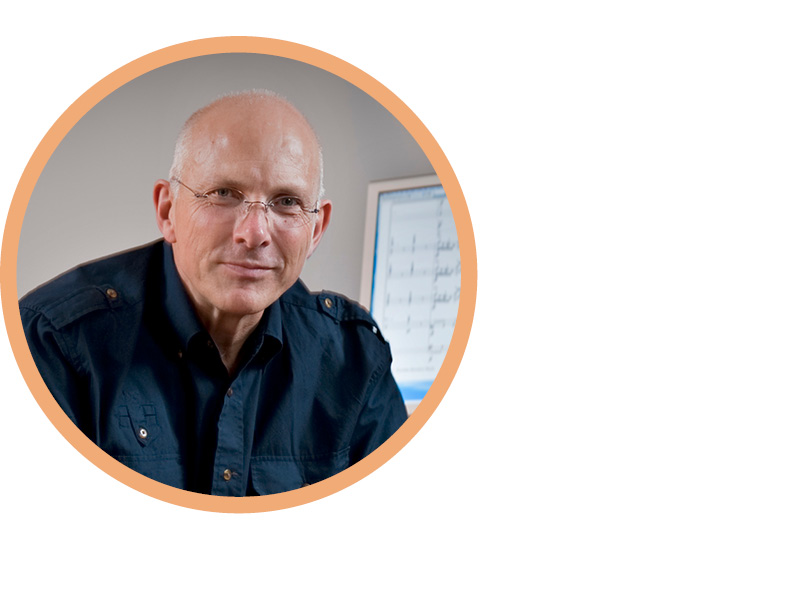
Nigel Westlake
Nigel Westlake’s career, spanning almost 5 decades, began as a clarinettist.
His concert works and movie scores have received many awards including the 2022 APRA Distinguished Services to the Australian Screen, 2 Aria awards, 15 APRA/AGSC awards, the Paul Lowin Orchestral Prize (2x) & the Gold Medal at the New York International Radio Festival.
Nigel holds an honorary Doctorate in Music, awarded by the University of New South Wales in 2012. He has conducted all the major symphony orchestras in Australia & made his US conducting debut in 2016 at the Lincoln Centre with the New York Philharmonic and European debut with the RTE Symphony in Dublin in 2018.
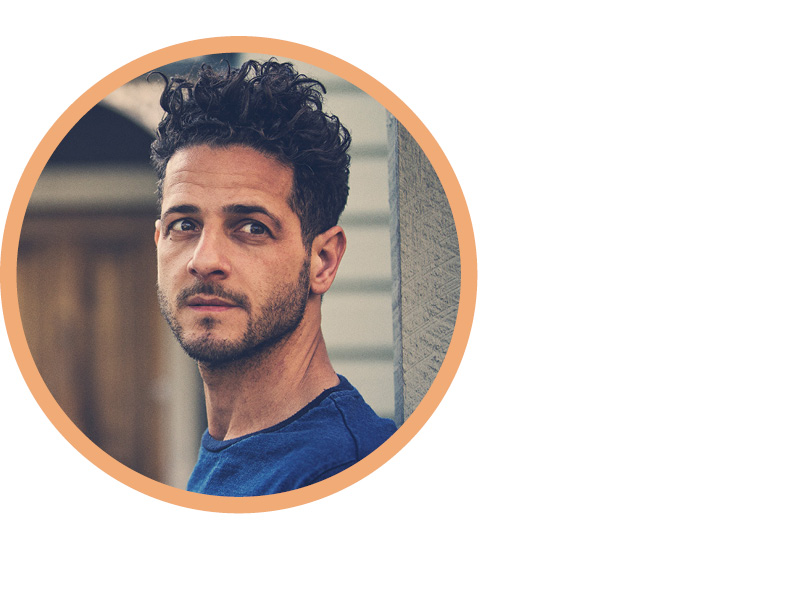
Lior
Lior is one of Australia’s most treasured singer-songwriters renowned for his beautiful voice and songs that radiate truth and sincerity. He burst on to the Australian music scene in 2005 with his debut album, Autumn Flow, and has subsequently released seven albums to date.
He has toured extensively both in Australia and internationally and is a multi-ARIA award-winner as well as the recipient of numerous other awards acknowledging the respect held for him across several arts platforms.
In 2014, Lior collaborated with Nigel Westlake on Compassion, a symphonic song cycle for voice and orchestra based on ancient texts in both Hebrew and Arabic centred around the wisdom of compassion. It has been performed with all major Australian orchestras.
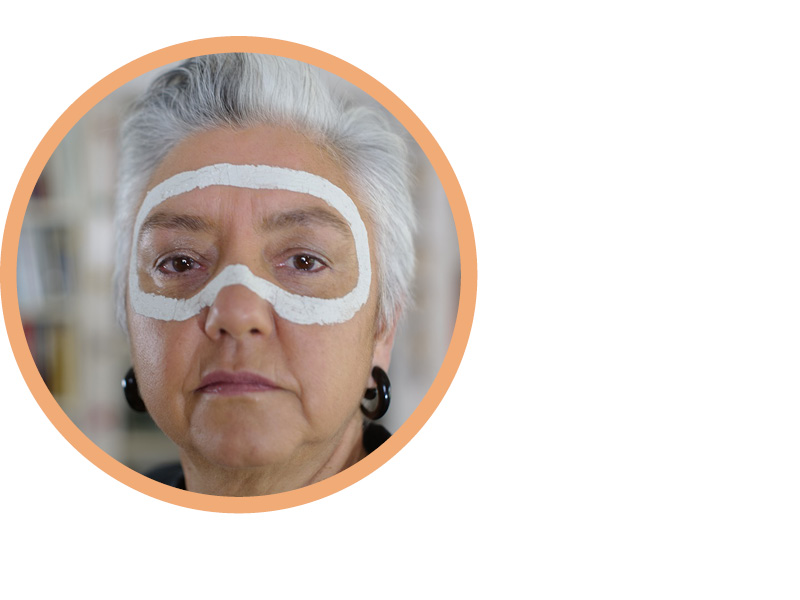
Dr Lou Bennett AM
Yorta Yorta Dja Dja Wurrung, Dr Lou Bennett AM is a former member of the internationally acclaimed trio Tiddas (1990-2000). A prolific songwriter/composer, she penned some of the group’s signature songs. In 2006, she was a co-founder of the iconic Black Arm Band.
Lou's work stretches over a vast area within the arts industry including her various roles as Performer, Songwriter, Musical and Artistic Director, Composer, Actor, Soundscape and Music Designer, Educator and Board member (Chair of the Australia Centre at the University of Melbourne; Board Member for RISING). She completed her PhD by project at RMIT Melbourne in October 2015.
Lou uses her own languages of Yorta Yorta and Dja Dja Wurrung, extending to other Aboriginal and Torres Strait Islander languages that can be retrieved, reclaimed and regenerated through songs, stories and performances.
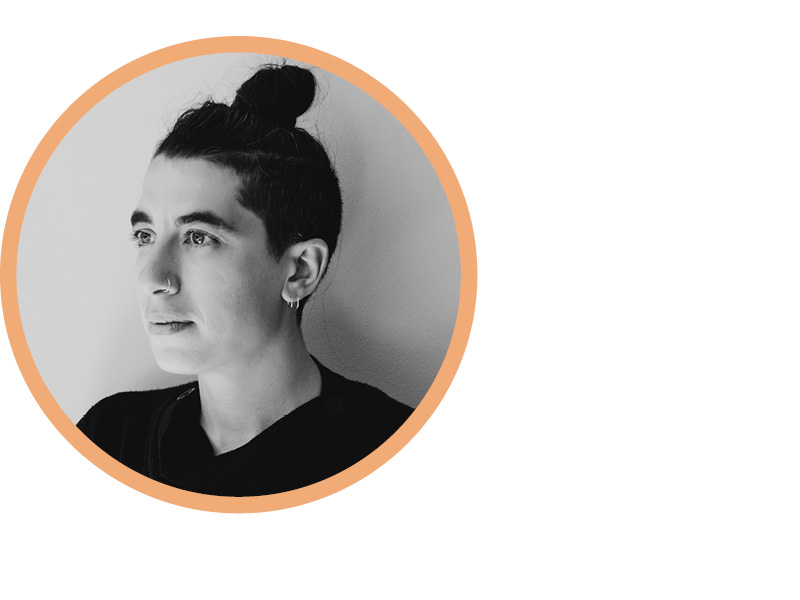
Sarah Gory
Sarah Gory is a writer, editor and scholar. Her award-winning creative non-fiction has been widely published in journals and magazines, as well as in museum catalogues, book chapters and various places online. Sarah teaches writing at Melbourne University and RMIT, and lives on unceded Kulin Nation Country with her family.

From Adelaide Festival & Partners
Partnering for Conservation
Adelaide Festival and Wilderlands currently safeguard 3,424m² of the Coorong Lakes habitat.
Help us reach 5,000m² by claiming your free 1m² by 22 April 2024 - take action here.
The UNIVERSITY OF ADELAIDE | Learn more >>
